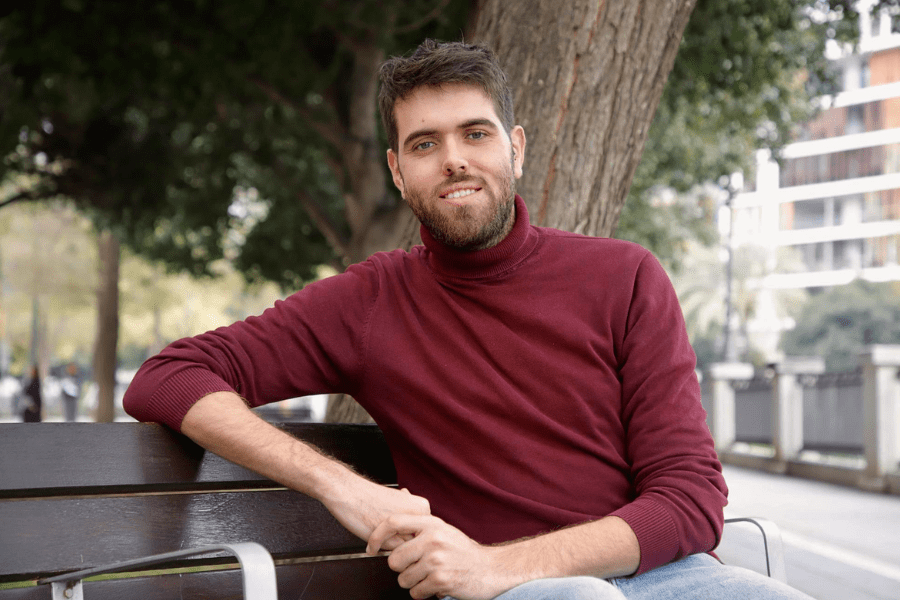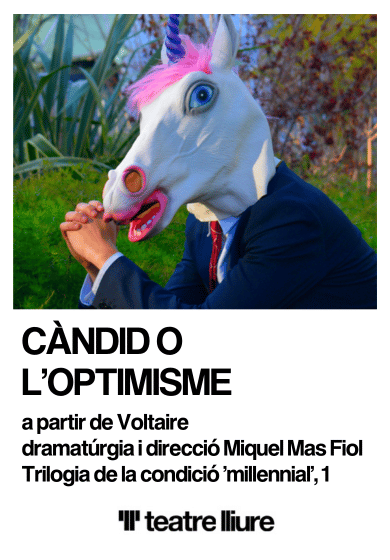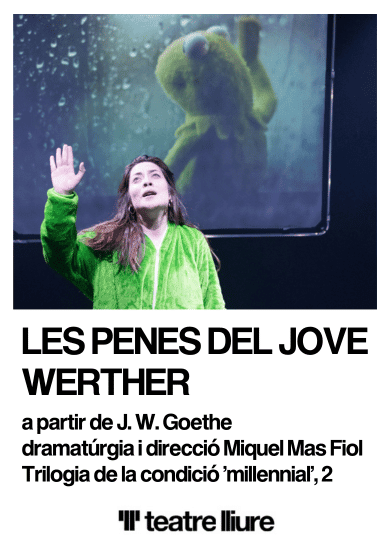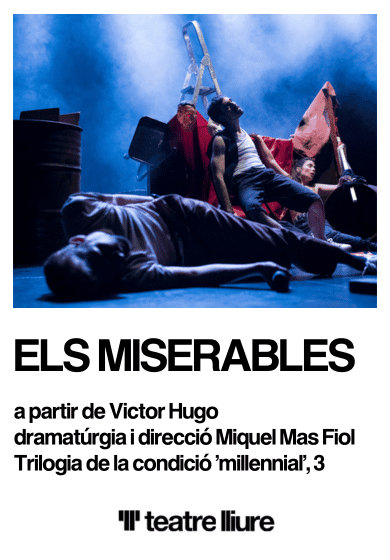
Miquel Mas Fiol: “To attract the young public is to laugh at our miseries”
When I get to the bar, he’s already there. It has been difficult to agree, but not for lack of desire. Miquel Mas Fiol he’s busy: he’s finishing the TFG and working on the adaptations for the Teatre Lliure of his trilogy about the millennial condition, which will be seen in November, coinciding with the premiere of his latest new text at the Teatre Akademia, burpees. It’s hard to keep up with him, but his schedule is proof of an overflowing creativity and a stubborn passion that he’s had since he was young, when he staged theater in the towns of Mallorca. With one foot on the island and the other in Barcelona, and as a trained publicist, he has been able to build his own brand: irreverent, intelligent, punk and popular, with a lucid critique of the miseries of his generation – precariousness, networks, housing, imposed happiness or the perversion of the world of entertainment.

Teatre Barcelona: Do you have the feeling that everything has come to you at once? Have you become a household name?
Miquel Mas Fiol: Maybe so, but there is a lot of work behind it. Bringing a work to Teatre Lliure is a gift, but also the result of working hard for years. The challenge is not to arrive, but to resist and consolidate. All the projects I have proposed, like those of the Theater Institute, have found a stage. I write thinking about where to present it; awards give you visibility and opportunities. It’s work, persistence and strategy.
In the case of Lliure, how do you get the proposal from Julio Manrique and Cesc Casadesús?
In Cesc Casadesús I had already seen The Sorrows of Young Werther and also The miserable onesin fact, he proposed to me to do a dramatized reading of it in Greek, but with Tantarantana we decided to go further and stage it in its entirety, and it worked very well. In Julio Manrique came to see it and loved it. It’s about a company of actors fed up with alternative theater and subjected to an unscrupulous director: misogynist, exploitative, overbearing. They want to make the revolution, but they don’t even know where to start. We laugh at everything and everyone, with names like Wizard Pop, Rigoberta Bandini or Carlos Cuevas. It’s crazy!
Didn’t you point to Julio Manrique in your criticism list?
no But we warned him that it will appear in the Free version. I already have a few ideas [riu sorneguer]. A The miserable ones it doesn’t come out, but in the previous one, The Sorrows of Young Werther by Goethe, yes. In fact, there is a moment in the assembly in which the Mel Salvatierrawho plays the actress who achieves her dream of performing a monologue based on Goethe’s work, becomes angry with the director. He tells her that he doesn’t want to do this show, that there is no one in the room, that not even Manrique will ever come to see them. And look! Now he will have to come.
The trilogy could be seen at the Tantarantana, where you did residency as a director. Have you considered many changes for the Free?
I am working on the dramaturgy, adapting it to the new space and fine-tuning the transitions between the three stories. I also want to give them a unit, so that in marathon format they can be read as a great epitaph: the death of the director. However, they can also be viewed separately.
A Candide or optimism read irreverent about the imposition of happiness; a The Sorrows of Young Wertheron the commercialization of sadness, ia The miserable onesabout precariousness and the lack of ideas. And all based on the classics: Voltaire, Goethe and Victor Hugo, and with metatheatre as a language.
I know well the world of theater and its weaknesses and foibles, and this allows me to talk about topics such as frustration, corruption or hypocrisy, among others. I come from the world of advertising and public relations, so I’m interested in the question of the masks we put on to sell ourselves socially. The theater within the theater helps me to place this question perfectly. Because in the theater everything has to be perfect, it has to be millimetre, the contact with the spectator has no cracks. Instead, the theater within the theater helps undo the seams of the social masks we put on to survive in the environment.
A critique of the social masks that networks assume is precisely the background of burpeesthe work that will be seen this November at the Academy Theatre.
Yes, it’s a thriller, a kind of road movie about digital toxicity and the growing impunity of masculinity in the networks, parallel to the rise of the extreme right. burpees it is born from the concern for individualism among young people and the rise of these “gurus” who, from the internet, teach you how a man of value should be. New preachers of happiness, but much more neoliberal, aggressive and reactionary.
You make theater that appeals to young people and reaches them. This audience so difficult and at the same time so precious to programmers. Do you want to give voice to a generation you know well?
I really like to write about what my references are, what I know. There is also a certain degree of activism, of claiming my generation and at the same time laughing at ourselves. I think attracting a young audience is also about seeing how miserable we are and identifying with everything that happens.
And do you find that you are as bad as you paint it in the works? Do you have it so black?
I think it’s screwed up, yes, but I don’t want to be pessimistic. Good things are also being achieved. I see a growth in the feeling of care, which although it may be a bit naive, also has to do with social cohesion. And that’s why I do theater, to generate cohesion. Despite the generational tone of my works, they also connect with other ages. A The miserable onesa man said to me as he was leaving: “It’s me with a T-shirt from Lluís Llach“.
“Humour is like a boomerang: it goes from the audience to us and back”
The way to combat this situation is with humor?
Yes, for me humor is basic. It takes you straight to the criticism, to what we care about. I like to laugh at how insignificant we are, at our contradictions, even at small things. I love the humor of The Cubanbut mine is more cynical. Humor is like a boomerang: it goes from the audience to us and back.
You work between Mallorca and Barcelona and your works are seen here and there. In Palma, a few months ago, you premiered there The butchers by Guillem Frontera, which will also arrive at Tantarantana, an acid comedy about the tourist bourgeoisie and the superficiality of a generation without its own cultural narrative. Your TFG also takes place in Mallorca and revolves around the housing problem…
Yes! It’s a group of crazy people competing for a flat on Carrer Oms de Palma, owned by a vulture fund. They decide to occupy it and set up a self-managed cooperative. It’s a lot of fun and I think it will have a run.
Is there a work that would make you especially excited to write?
Yes, I think that Mallorca needs a long work, of a couple of hours, that explains who we are through a family and its generations. a kind ofAugust of Tracy Lettslike the one that starred theAnna Lizaran at TNC. I would love to write this.
More information, images and tickets:












